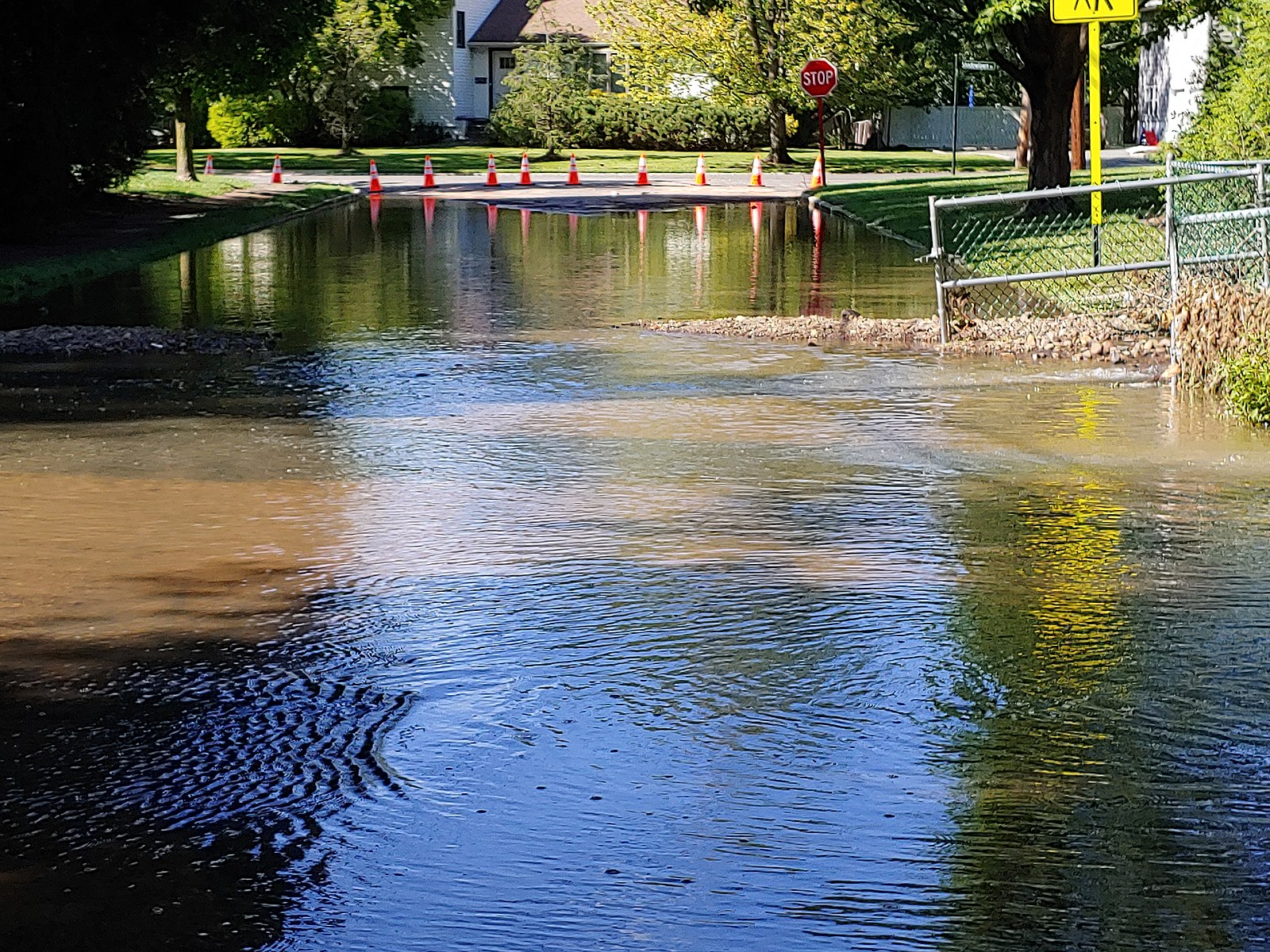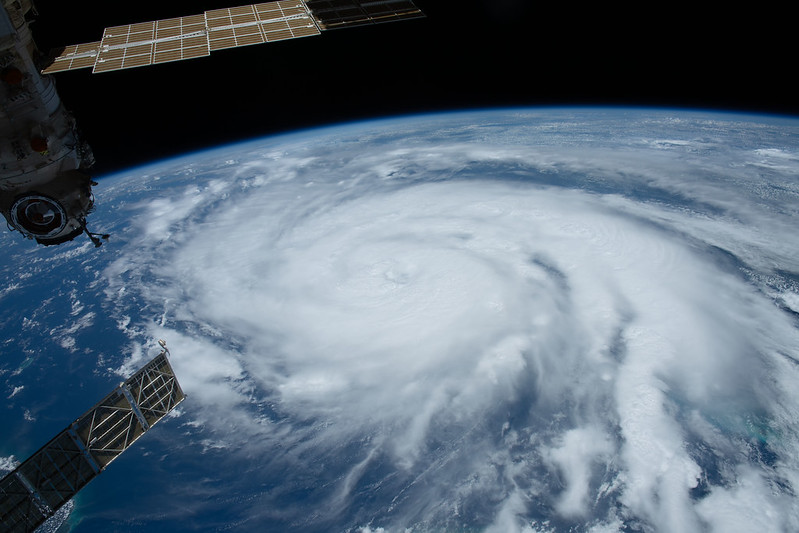
Wikimedia Commons

Wikimedia Commons
Envision this – rain patters on a street surface, accumulating until it pours across the concrete sweeping along with the howling winds. Below the surface, a myriad of copper, clay, and wooden pipes grapple with the flash flood – one that would eventually make it to the surface.
On September 1, 2021, a scene quite like this played out as the remnants of hurricane Ida surged over the city of Newark. As the intensity of rain increased, the swollen Passaic River burst, hauling its contents across the grounds of the Newark Liberty International Airport, school buildings, and dozens of streets.
The aftermath of the storm left the city of Newark crippled, with billions of dollars in damages, 25-30 people dead across the state, and 430 stranded residents in need of rescue from their cars or from some kind of transportation.
Two years after this devastation, has the city fortified itself against potential storms? According to Nicole Miller, a member of Newark environmental commission, co-chair of Newark DIG (Doing Infrastructure Green), and co-chair of the Jersey Water Works Steering Committee, “not yet.”
Newark is among the oldest cities in the United States. The Passaic River flows through the city and goes into Newark Bay. The city’s proximity to waterways has made its waterfront an important transportation hub of the Port of New York and New Jersey.
While the city’s location offers opportunities for trade, it also makes Newark more susceptible to flooding. “Somewhat like 40% of the city is in a floodplain or a FEMA flood zone. And a good portion of the city is below sea level. New Jersey has already experienced 1.5 feet of sea level rise since 1900, with up to 2 feet more expected by 2050,” Miller said.
For the city, addressing the flooding issue is not only a matter of necessity but also a matter of time.
In Newark’s Ironbound neighborhood, floods are a regular occurrence. According to Viravid Na Nagara, one of the leading researchers at the Center for Natural Resources at the New Jersey Institute of Technology, “The majority of Newark uses a combined sewer system.” In this system, wastewater and stormwater from streets, roofs, and other surfaces flow through the same pipes and get treated in the Newark Bay Treatment Plant operated by Passaic Valley Sewerage Commission (PVSC).
The issue with this system, as Nagara stated, was that when the volume of stormwater exceeds the capacity of the system in situations like a heavy rainstorm, the system can get overwhelmed and trigger something called, “combined sewer overflow.”
This occurs when, during heavy rainfall, a combined sewer system releases some of the untreated sewage and stormwater to nearby water bodies, such as rivers and streams through outfalls located throughout the system. This, however, is not always an efficient drainage system. In the event of a river overflow, the newly contaminated river water would pose a threat to public health. This risk is also present during blockages in the system which result in the back up of toxic human sewage and industrial into streets and homes.

Putting aside the economic implications, flooding has both social and environmental repercussions. Meghana Parameswarappa Jayalakshmamma, a final-year Ph.D. candidate in Environmental Engineering at NJIT stated, “Microplastics have been found in stormwater runoff. Any storm events can cause these pollutants to be washed off from one region to the other region. Based on rainfall intensity and duration, microplastics can be taken from highway, commercial, and residential areas.” Jayalakshmamma also talked about the research conducted in 1972 that found that fish and other aquatic organisms were consuming microplastics – something that has remained unchanged with the current drainage systems.
The polluted water not only affects aquatic animals but humans alike. Individuals who come in contact with the toxic water become sick and some lose their jobs due to their inability to work. In Newark, the destruction of homes also displaced some residents. Miller stated that many of Newark’s residents are still suffering from the lingering effects of the floods.
Through the difficulties, Newark has proved itself to be a resilient city. Albeit slowly, the city is working to implement different flood mitigation measures that incorporate green infrastructure. Nagara is one of the individuals working on flood mitigation strategies in Newark.
“It is important before implementing anything to have communication with the community and understand what they are expecting or need,” Nagara said.
In tandem with the Newark community, Nagara is creating a map that people can use to get “perspective to which area needs green infrastructure to be built to mitigate flooding.” This map records the extent of flooding, depth of water, and speed of water.
With this map, Nagara makes determination about the locations in which stormwater planters can be built.
These planters capture rainwater by featuring small gardens inside concrete, stone, or brick features. These would bring back biofiltration, improving water quality by retaining microplastics and other pollutants & allowing absorption of water by the land – a perfect example of “borrowing the approach from nature,” Nagara stated.
NewarkDIG, a coalition of groups focused on stormwater management throughout Newark, is also working on projects such as rain gardens. Miller explains that the rain gardens will slow down the water that usually goes into the pipes unimpeded causing the intense flow of water in the system. In the process, some water could also be used on the plants. NewarkDIG is working alongside Newark Workforce Development Board to open up jobs for people in designing, implementing, and maintaining green infrastructure.
Outside of organizations in the community, individuals of the community are just as vital in advancing Newark in its fight against floods. The GI Reformer Team of NewarkDIG, according to Miller, raises public awareness through presentations about combined sewer overflows, flooding, and involvement opportunities.
“The data is all pointing to the future” Miller states, referring to data predicting the increasing sea levels and precipitation in the coming years.
“It’s not just about the numbers. It’s not just about the money. It’s really about what’s the cost of inaction?”